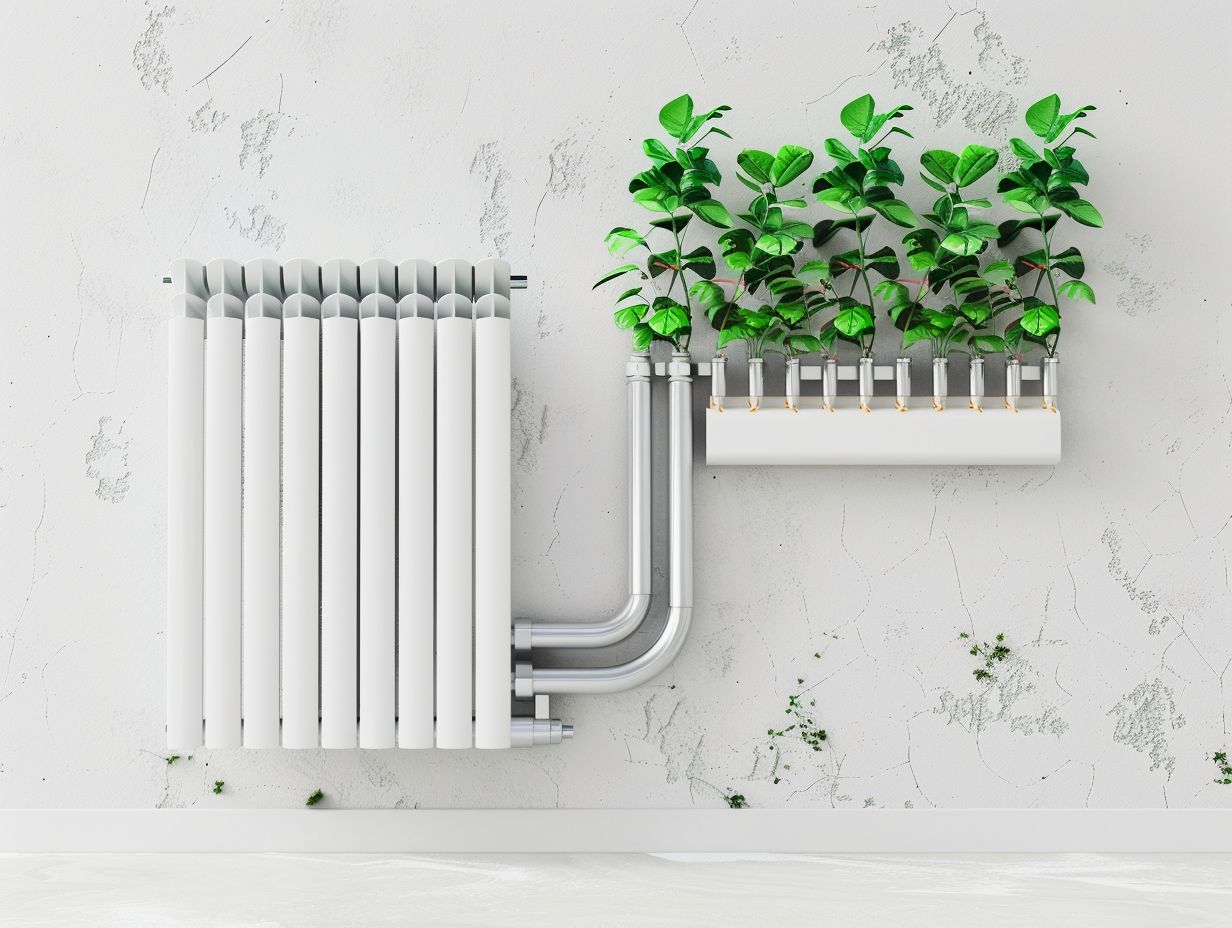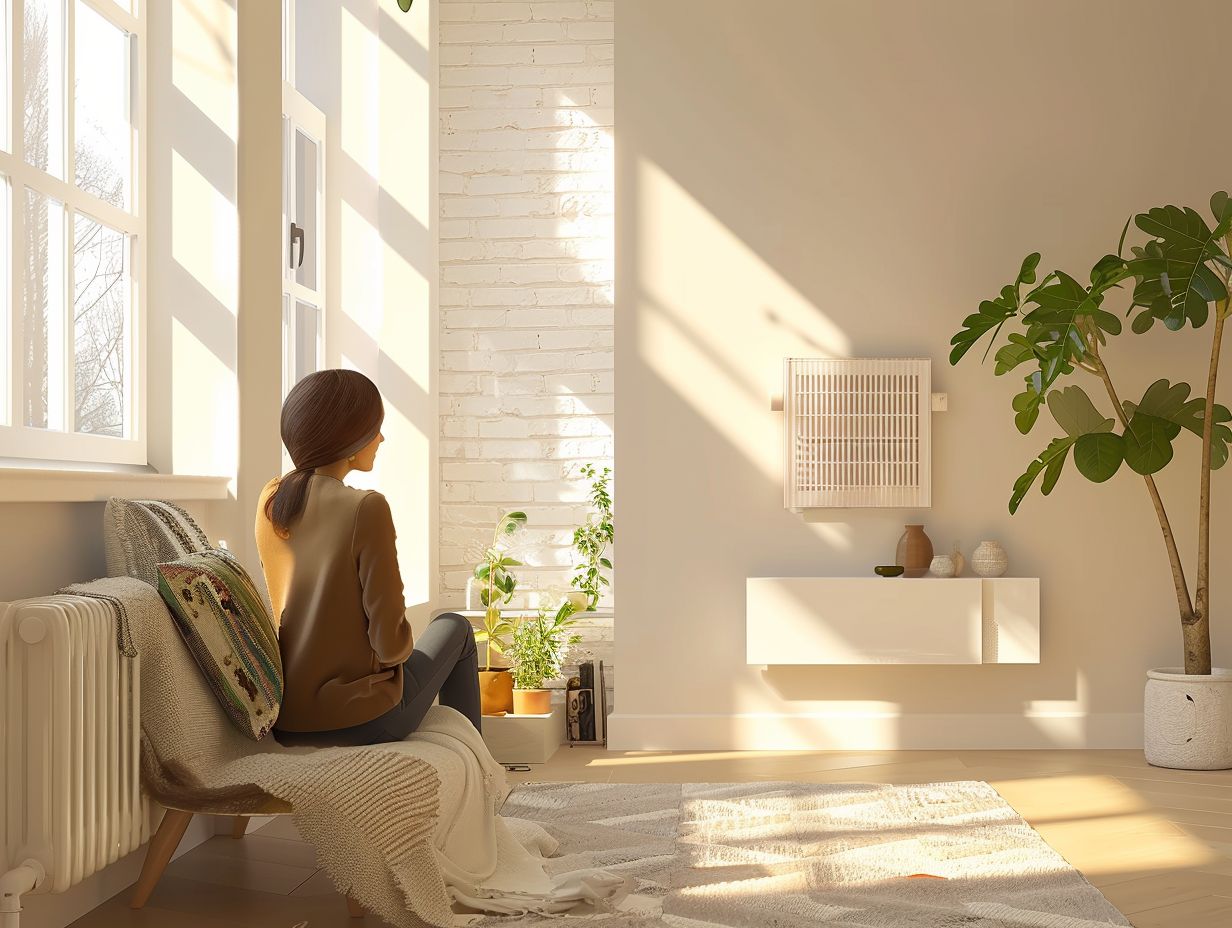As the demand for sustainability and energy efficiency grows, the integration of renewable energy sources with modern radiators is becoming increasingly popular.
You will explore the evolution of radiators, compare traditional and modern models, and receive an overview of available renewable energy options.
This discussion will address the compatibility of modern radiators with renewable energy, the benefits of this combination in terms of efficiency and cost savings, as well as best practices for installation and maintenance.
Real-life case studies showcasing successful implementations will highlight the positive outcomes of using modern radiators with renewable energy. You are invited to join us on this journey into the world of contemporary heating solutions and sustainable energy practices.
Key Takeaways:

- Renewable energy sources are a viable option for powering contemporary radiators, reducing reliance on fossil fuels.
- Utilising contemporary radiators with renewable energy can result in increased efficiency and cost savings for homeowners and businesses.
- Proper installation and maintenance practices are crucial for successfully implementing contemporary radiators with renewable energy sources..
Compatibility of Contemporary Radiators with Renewable Energy

The compatibility of contemporary radiators with renewable energy is demonstrated through the seamless integration of electric heating systems with renewable heat energy sources such as air source heat pumps.
Consumers now have a diverse range of eco-friendly heating options available to them. These modern heating solutions not only deliver efficient warmth but also support a sustainable approach to energy consumption.
By utilising renewable sources like solar panels or geothermal heat pumps, households can make a significant reduction in their carbon footprint.
The advanced technology incorporated in contemporary radiators ensures optimal performance while upholding environmental consciousness. The increasing focus on eco-friendly practices has driven advancements in heating systems that prioritise energy efficiency and the reduction of environmental impact.
Factors to Consider
When evaluating the compatibility of contemporary radiators with renewable energy in your system, several factors should be considered. These factors include energy consumption, potential savings, maintenance requirements, and overall efficiency.
Choosing the right combination of radiators can lead to significant benefits in terms of both environmental impact and financial savings.
Energy consumption is a critical factor that must be examined when selecting radiators for use with renewable energy sources. Opting for models that are energy-efficient and have the ability to regulate heat output can contribute to minimising overall energy usage.
Considering the maintenance needs of radiators is essential to ensure their longevity and optimal performance. Investing in radiators that require minimal upkeep can help in reducing both time and costs associated with maintenance. Prioritising high-efficiency radiators not only impacts the effectiveness of the renewable energy system but also enhances energy savings in the long run.
Benefits of Using Contemporary Radiators with Renewable Energy
The benefits of using contemporary radiators with renewable energy extend beyond energy efficiency to encompass financial advantages and a reduced carbon footprint.
As a consumer, you can experience lower electricity bills while contributing to a greener economy by embracing eco-friendly heating solutions. When integrating contemporary radiators with renewable energy sources, you will notice a significant reduction in energy costs over time.
By utilising sustainable power for heating purposes, you can not only achieve immediate savings on utility bills but also help promote environmental sustainability. This transition to energy-efficient heating systems benefits not only households but also aligns with the broader objective of moving towards a more eco-conscious and sustainable lifestyle.
By making this change, you can actively contribute to building a cleaner and greener future for future generations.
Efficiency and Cost Savings
Efficiency and Cost Savings are essential when utilising Contemporary Radiators with Renewable Energy, particularly in today’s dynamic energy landscape characterised by global spikes and evolving energy consumption habits. Maximising thermal efficiency can result in significant cost savings and a more sustainable energy footprint.
By leveraging the potential of renewable energy sources, such as solar or geothermal energy, alongside advanced radiators, households and businesses can greatly reduce their dependence on traditional fossil fuels, thus contributing to a more environmentally friendly setting.
The integration of smart technologies like energy-efficient thermostats and automated heating systems further enhances the efficiency and cost-effectiveness of this approach. This not only reduces energy expenses but also aligns with broader objectives of curbing carbon emissions and addressing climate change.
Installation and Maintenance of Contemporary Radiators with Renewable Energy
The installation and maintenance of contemporary radiators with renewable energy emphasise the importance of low maintenance systems that prioritise safety and efficiency. You can enjoy eco-friendly heating solutions without concerns such as carbon monoxide leaks, contributing to a greener energy economy.
By integrating renewable energy sources into the installation of modern radiators, households can significantly reduce their carbon footprint while benefiting from cost-effective heating solutions. Embracing these energy-efficient systems not only ensures a comfortable living environment but also plays a crucial role in creating a sustainable future.
With features designed to minimise potential risks like carbon monoxide leaks, these radiators provide peace of mind for homeowners seeking safe and reliable heating options. By adopting such technologies, you actively contribute to the growth of a green energy economy, promoting environmental stewardship and long-term sustainability.
Best Practices and Tips

In terms of the installation and maintenance of contemporary radiators with a focus on renewable energy, it is crucial to follow best practices and tips.
In regions like England, Wales, and Scotland, it is possible to leverage government grants and green energy tariffs to support sustainable heating solutions. By adhering to these best practices, consumers can effectively optimise their eco-friendly heating systems.
These heating systems have the potential to significantly reduce energy bills and lower the carbon footprint by utilising renewable sources such as solar or geothermal energy.
Proper sizing and placement are essential when installing contemporary radiators to ensure optimal performance. Regular maintenance, including activities like bleeding the radiators to remove trapped air, is vital in keeping them running efficiently.
To make the transition to eco-friendly heating more cost-effective and environmentally friendly, it is advisable to take advantage of government incentives and green energy tariffs. This not only benefits the environment but also supports sustainable heating solutions for the long term.
Case Studies: Successful Implementation of Contemporary Radiators with Renewable Energy
Case Studies: Successful Implementation of Contemporary Radiators with Renewable Energy presents real-life examples of incorporating renewable energy sources into residential properties. These case studies highlight the significant benefits such as energy savings, enhanced thermal efficiency, and the adoption of high-efficiency heating solutions.
An intriguing case study featured a residential property that integrated modern radiators powered by solar panels. Through harnessing solar energy, the homeowners experienced a noteworthy reduction in electricity costs and carbon emissions. The upgraded thermal efficiency of the radiators ensured consistent warmth throughout the entire house.
This successful implementation not only yielded substantial cost savings but also showcased the positive impact of sustainable heating solutions in everyday residential settings.
Real-Life Examples and Results
Real-life examples and results of integrating contemporary radiators with renewable energy demonstrate the collaborative efforts of energy suppliers, consumers, and the electricity grid towards a sustainable future.
These examples showcase reduced energy consumption and emphasise the collective impact on building a greener and more efficient energy landscape.
For instance, in various cities, partnerships have been formed between energy companies, households, and the local power grid to optimise the use of renewable energy for heating systems.
By leveraging smart technologies, such as IoT-enabled thermostats and energy management platforms, consumers can now adjust their heating preferences based on the availability of renewable energy sources.
This not only leads to lower energy bills for households but also helps in balancing the demand on the electricity grid, ultimately promoting a more sustainable energy ecosystem.
Frequently Asked Questions
Can Contemporary Radiators Be Used with Renewable Energy?
Yes, contemporary radiators can be used with renewable energy sources such as solar, geothermal, and biomass.
What are the benefits of using renewable energy with contemporary radiators?

Using renewable energy with contemporary radiators can help reduce carbon emissions, lower energy costs, and promote sustainability.
Do contemporary radiators require any modifications to use renewable energy?
In most cases, contemporary radiators do not require any modifications to use renewable energy. However, it is important to consult with a professional to ensure compatibility and proper installation.
What types of renewable energy sources are compatible with contemporary radiators?
Contemporary radiators can be used with a variety of renewable energy sources, including solar panels, geothermal heat pumps, and biomass boilers.
Are there any limitations to using renewable energy with contemporary radiators?
One potential limitation is that the efficiency of renewable energy systems may be affected by weather conditions. For example, solar panels may not produce as much energy on cloudy days.
Can contemporary radiators be used with multiple renewable energy sources?
Yes, contemporary radiators can be used with multiple renewable energy sources. This can provide a more reliable and consistent heating system, as well as further decrease reliance on non-renewable energy sources.

